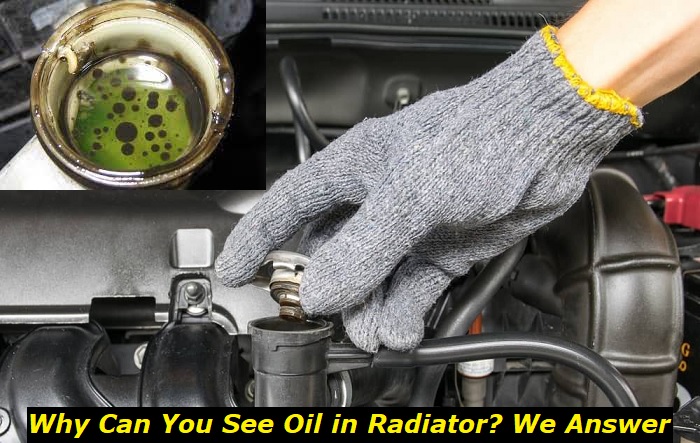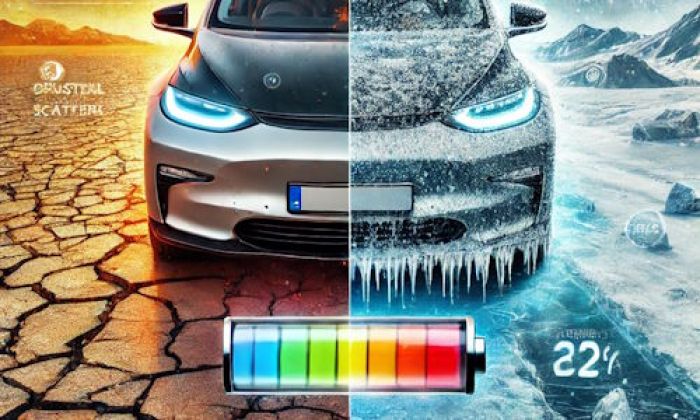Are you noticing oil in your radiator but scratching your head wondering why there's no water in your oil? Well, it's a common problem that car owners encounter, and the reasons behind it can be varied and puzzling. In this article, we'll discuss the possible reasons why your radiator has oil in it but there is no water in oil.
Engine leaks highlights
- Level of importance:Medium
- Commonreasons:Problems with seals and gaskets, internal failures
- DIY inspection:Possible but complicated
- DIY repair:Mostly,impossible
- Price for repair:$150 - $650
- Can you drive?Only if the leak is minor
- Ways to fix:Replace the broken gasket or seal, replace the failed part

Cracked Cylinder Head or Engine Block
Think of your engine as the superhero of your car, with the engine block and cylinder head as its dynamic duo. They work together to create the explosive power that propels your car forward. But when there's a crack in this dynamic duo, it's like kryptonite to your engine.
When oil mixes with coolant due to a crack in the engine block or cylinder head, it's like the villainous Joker teaming up with Penguin. The mixture ends up in the radiator, causing chaos and confusion in the normally peaceful cooling system.
A crack in the engine block or cylinder head can occur due to a variety of reasons, from overheating to physical damage to good old-fashioned wear and tear. Just like a superhero needs a sidekick to have their back, your engine needs regular maintenance to prevent cracks and other issues from arising.
To diagnose a cracked engine block or cylinder head, a mechanic may use specialized equipment to perform a pressure test or a dye test. If a crack is found, the damaged part will need to be replaced, which is a complex and time-consuming process.
In short, when you see oil in your radiator but no water in your oil, it's a sign that your engine's dynamic duo is under attack. Prompt attention and care can help prevent further damage to your engine and keep it running smoothly for years to come. So treat your engine like the superhero it is, and it will repay you with years of faithful service!
Blown Head Gasket
The second reason may be a blown head gasket. Your car's head gasket is the critical component that seals the engine's combustion chamber and cooling system, which is essential for keeping your oil and coolant separate. When the head gasket fails, it allows oil to mix with the coolant, ultimately ending up in the radiator.
Several factors can cause a blown head gasket, including overheating, general wear and tear, or old age. It's essential to address the issue as soon as possible since driving with a blown head gasket can cause severe engine damage and render your car inoperable.
To diagnose a blown head gasket, you should take your car to a qualified mechanic, who will use specialized equipment to test the presence of oil in your coolant. The mechanic may also perform additional tests to confirm the problem is indeed the head gasket.
If your head gasket is blown, you need to have it replaced. However, it's a costly and time-consuming process. That's why regular maintenance is crucial to prevent a blown head gasket. Make sure to have your engine correctly maintained with regular oil changes, check your coolant levels, and avoid overheating to extend the life of your head gasket.
It's crucial to remember that a blown head gasket is a severe issue that requires immediate attention. So, don't ignore it, head to your mechanic and get it sorted before it leads to more significant issues. By taking care of your car and addressing any problems promptly, you can keep your car running smoothly and avoid costly repairs in the future.
Transmission Cooler
We all know that cars can be a little bit high-maintenance, but did you know that some of them even have their own built-in transmission cooler? That's right, it's a small but mighty part that helps keep your transmission running smoothly. But what happens when it fails?
Well, when the transmission cooler fails, it can lead to a not-so-pleasant situation. You guessed it - oil in the radiator. Nobody wants that! This happens when transmission fluid mixes with coolant, creating a sludgy mess that can lead to all kinds of trouble for your engine.
So, how do you know if your transmission cooler is failing? Keep an eye out for warning signs like low coolant levels, overheating, or a sudden decrease in transmission fluid. And remember, catching the problem early can save you a lot of money and headache down the road.
But don't worry, there are ways to prevent a transmission cooler failure. Regular maintenance is key, so be sure to get your coolant system flushed on schedule and keep an eye on your transmission fluid levels. And if you suspect that your transmission cooler is on the fritz, don't hesitate to take your car to a trusted mechanic.
So, there you have it - another part to add to your car maintenance checklist. Keep your transmission cooler running smoothly and avoid that dreaded oil in the radiator. Your engine (and your wallet) will thank you.
Faulty Oil Cooler
Now let's talk about the unsung hero of your engine - the oil cooler. You know what they say - behind every great engine is a great oil cooler!
Think of your oil cooler like your car's personal spa - it keeps your engine oil cool and relaxed, and prevents it from getting too hot and bothered. Without it, your engine would be one hot mess, and not in a good way!
Now, we know what you're thinking - "Why should I care about my oil cooler?" Well, let us tell you. Your oil cooler can make the difference between a smooth-running engine and one that's sputtering along.
If your oil cooler starts to fail, you might notice things like oil mixing with your coolant or reduced engine performance. And let's be real, no one wants a sludgy, clogged-up engine.
But fear not! You can keep your oil cooler in top condition by sticking to a regular maintenance schedule. Get your oil changed on time, keep an eye on your coolant levels, and have your mechanic give your oil cooler a once-over during routine check-ups.
And if you suspect something's up with your oil cooler, don't hesitate to speak up. Your mechanic can help you understand what's going on and keep your engine purring like a kitten.
So, there you have it, folks. Your engine's oil cooler may not be the most glamorous part, but it sure is important. Take care of it, and it'll take care of you!
Overfilled Oil
When it comes to maintaining a properly functioning engine, making sure the oil level is just right is key. If the oil is overfilled, it can put your engine at risk for serious damage. The excess oil can find its way into the coolant system through the oil pump or other components, leading to a range of problems from clogged hoses and decreased coolant flow to total engine failure.
Many people do not realize that having too much oil may be just as harmful as having too little. An overfilled engine will, at best, experience lower performance and fuel efficiency. In the worst-case scenario, the oil may reach the engine's cooling system, requiring costly repairs.
The easiest way to make sure the oil is at the right level is to check it regularly with a dipstick and top it off as needed. Too much oil is just as bad as too little, so make sure to follow the manufacturer's specified oil capacity when filling. Taking the time to check the oil level yourself could save you a lot of money and headaches down the line.
Improper Installation
Improper installation of an oil filter or oil cooler can have serious consequences, so it is essential that they are installed correctly. If the filter or cooler is not tightened to the proper specifications or installed at the correct angle, it can allow oil to enter the coolant system, leading to a variety of problems.
An incorrectly placed filter or cooler can result in clogged hoses, reduced coolant flow, and even engine failure. It is recommended to let a skilled mechanic handle any filter or cooler installation in order to prevent these pricey repairs. They not only have the skills and equipment required to execute the job correctly, but they can also examine the parts to ensure they are undamaged and in excellent operating order.
Additionally, they can advise if the filter or cooler needs to be replaced due to wear and tear or other issues. Taking the time to ensure that the oil filter and cooler are properly installed can save you a lot of money and frustration in the long run. Regular inspections and maintenance should also be performed to ensure the components are in good working order.
Final words
In conclusion, owning and maintaining a car necessitates paying attention to certain parts, especially the cooling system. A faulty component, such as a cracked cylinder head or engine block, a damaged head gasket, a malfunctioning transmission cooler, a malfunctioning oil cooler, overfilled oil, or an improperly installed oil filter or cooler, may be the cause of oil being found in the radiator even if there is no water in the oil.
If any of these components malfunction, it is crucial to take the car to an experienced technician for a comprehensive evaluation and the required repairs. Regularly maintaining and inspecting these parts can save money in the long term by avoiding unintended harm.
About the authors
The CarAraC research team is composed of seasoned auto mechanics and automotive industry professionals, including individuals with advanced degrees and certifications in their field. Our team members boast prestigious credentials, reflecting their extensive knowledge and skills. These qualifications include: IMI: Institute of the Motor Industry, ASE-Certified Master Automobile Technicians; Coventry University, Graduate of MA in Automotive Journalism; Politecnico di Torino, Italy, MS Automotive Engineering; Ss. Cyril and Methodius University in Skopje, Mechanical University in Skopje; TOC Automotive College; DHA Suffa University, Department of Mechanical Engineering






Add comment